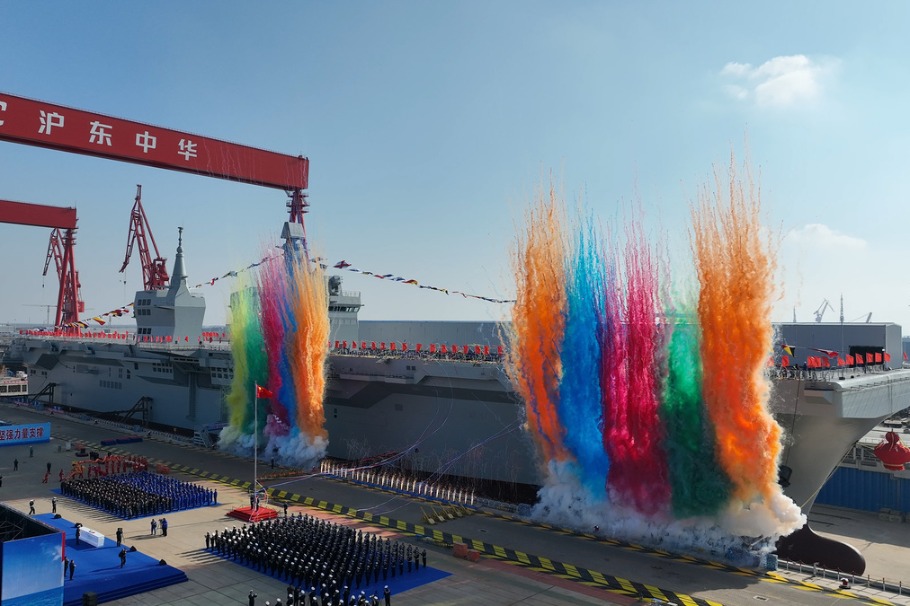Worries that situation in Middle East is on the brink of spiraling out of control not unfounded: China Daily editorial


China is among those countries that have expressed their concern at the latest turn of events in the Middle East.
In a routine news conference, responding to a question about the killing of Hamas' top political leader Ismail Haniyeh in a targeted missile strike on Wednesday in Teheran, a Foreign Ministry spokesman said, "We are greatly concerned about the incident, firmly oppose and condemn the assassination, and are deeply worried that this incident may lead to further instability in the region."
While falling short of admitting culpability for Haniyeh's execution, Israeli Prime Minister Benjamin Netanyahu said his country "will exact a very heavy price from any aggression against us on any front" after Iran accused Israel of carrying out the strike and vowed "a harsh and painful response".
Iran naming Israel as the perpetrator is not surprising given that Netanyahu has repeatedly stated Israel's objective is to completely eliminate Hamas, that Haniyeh and other Hamas leaders were on Israel's most wanted list after the group waged surprise attacks on southern Israel that sparked the war in Gaza, and that Tel Aviv and its ally Washington have orchestrated previous extraterritorial hits on leaders of Hamas and Iran's Islamic Revolutionary Guard Corps in recent years.
With Israel's onslaught against the Palestinians continuing in Gaza, Haniyeh's assassination will, no doubt, fuel more hatred between Hamas and Israel and trigger more anti-Israel sentiment among Hamas sympathizers, thus giving greater momentum to the vicious circle of violence that has convulsed the region.
With Haniyeh's killing triggering fears that it presages a dangerous escalation of the animosities in the Middle East, a region already deeply mired in the months' long Israel-Hamas conflict, it is only natural that members of the international community are urging that there be no further reckless moves that could ignite a broader conflict in the region.
Saying that China is deeply worried the incident may lead to further instability in the region and beyond, the Chinese Foreign Ministry spokesman called for a comprehensive and permanent cease-fire in Gaza as soon as possible to avoid any further escalation of conflict and confrontation.
The Israel-Hamas conflict has already spilled over to other parts of the region, involving more regional actors, including the Houthi group in Yemen and Hezbollah in Lebanon. If Iran steps in to avenge the death on its soil, it could also drag the United States directly into the conflict, which has already killed more than 39,445 Palestinians in Gaza and displaced approximately 2 million people.
Yet for the warmongering Israeli leader, dragging the US into a direct conflict with Iran may seem attractive as a way to help him out of the current quagmire of the prolonged war with Hamas and the rising opposition to it both at home and abroad.
With the backing of the US, Israel is already striking out in all directions, creating more obstacles to international efforts to broker peace.
A day before Haniyeh's assassination, Israel claimed a strike in the Lebanese capital of Beirut that killed Fouad Shokor, Hezbollah's top military commander. As such, if Washington continues to give tacit consent to Israel and allow it to attack whoever and wherever it wants, it is tantamount to handing it a match to light the fuse of an all-out regional war.
Further instability in the Middle East serves no country's interest, including Israel and the US. Key players in the region should exercise the utmost restraint to stop the vicious circle of tit-for-tat retaliations, so as to prevent the situation from spiraling out of control.
The chaos in the Middle East and the worsening humanitarian crisis should spur the international community to make even greater efforts to resolve the regional animosities through negotiations and dialogue and push for a comprehensive and permanent cease-fire in Gaza as soon as possible so as to avoid further escalation of the hostilities.


































